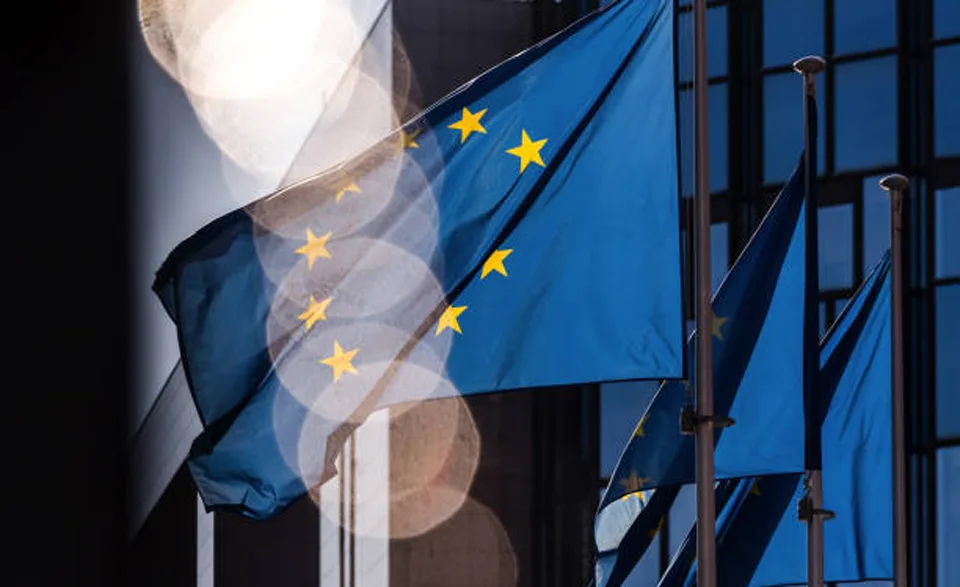The EU is addressing its dependence on geopolitical rivals, such as China and Russia, by ‘de-risking’ its economy. This practice aims to curb China’s access to top-notch Western innovation and reduce overreliance on China for critical goods, such as critical minerals. The EU imports 93% of its annual consumption of these strategic materials from China. This is part of a broader strategy to re-energise European industry and innovation while advancing the goals of the green transition.
However, the EU’s current policy is new to the institution, as it was created on the basis that great power competition was harmful to the world and increased economic cooperation and links were guarantors of peace. The experiment of Franco-German integration in the Carbon and Steel Agreement, which was guiding light, was seen as the first concrete foundation of a European federation indispensable to the preservation of peace. Economic security was not yet part of the ‘Four Freedoms’ that gave birth to the European idea: the freedom of movement of goods, services, people, and capital.
The European Union (EU) is embracing the language of power, focusing on geopolitics and using trade and technology to achieve economic security. The EU has decided to pursue an Economic Security Strategy, assessing the risk to the EU economy through a list of critical technologies following the Dutch decision to impose unilateral export controls on semiconductor materials. The EU also agreed on an Anti-Coercion Instrument, giving it the power to launch retaliatory countermeasures to combat economic coercion following China’s arbitrary blockade of Lithuanian products after the country opened a Taipei Trade and Economic Office.
These strategies are ‘country agnostic’, acknowledging that the EU faces challenges from multiple fronts and avoiding a specific approach delimited by circumstances. Instead, the EU is embracing a strategic, long-term vision for economic security that should outlast malpractices from any rival. The European Economic Security Strategy makes direct references to shared intelligence across member states on economic security and an EU path to screening foreign direct investments made by European companies outside the single market. However, this approach has not been perfect, as the EU still describes China as a ‘partner for cooperation and negotiation’, an ‘economic competitor’, and a’systemic rival’.
The Strategic Compass, a symbol of the EU’s desire to speak the language of power, has become obsolete after Russia invaded Ukraine in February 2022. The Compass represents a need to adapt to current events and tailor an approach to competitors like Russia and China. Some member states are implementing economic security measures against China and Russia, but lack of coordination among them is a concern. The Netherlands has taken the lead with recent export controls limiting China’s access to key materials for chip production. Germany has released a new ‘Strategy on China’ to reduce dependence on strategic rivals. However, other member states still have differing views on China, with France avoiding public acknowledgment and Hungary not considering China a threat.
The EU was not designed as a geopolitical body, and to make significant geopolitical decisions, it must create an agreement among 27 member states with different interests. While economic security is only one dimension of security policy, it is important to recognize the limited areas where the EU has a mandate to perform, which does not yet include national security. De-risking, a policy aimed at securing materials vital to national security, has two authorities: economic competitiveness from Brussels and national security from member states.
The EU is de-risking and aims to align with partners like the US, Canada, and Australia through mission-focused bodies like the EU-US and EU-India Trade and Technology Councils. This will reinforce its tech partnerships and help build economic security through coordination on strategic supply chains, sharing information about market exposures, and integrating critical supply chains into a secure market alliance. The EU is transforming at philosophic, political, economic, and diplomatic levels, reimagining the role of the Commission and member states. It is crucial that the EU does not act unilaterally on member state competencies, acts as a uniting force, and navigates great power competition with Western allies.


